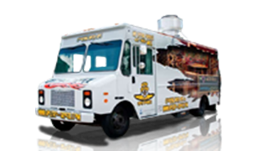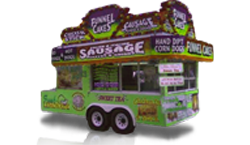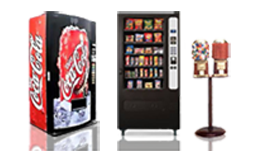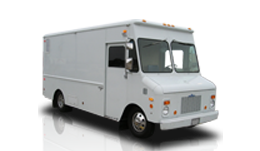How to Prepare Your Food Truck Business for a Surprise Health Inspection

Let’s face it: starting any business can be confusing because of everything you have to learn and all the requirements you need before you can officially open. Starting a food truck is no different. Finding a suitable truck, researching local and state laws, and learning about local health codes are just the tip of the iceberg. Of course, you still had to decide what cuisine to focus on (if any), plan your menu, and pick the equipment you would need.
So you’ve chosen between a new and used food truck and installed any additional equipment. You have a menu you can work with and that your target market enjoys, and you’ve started getting used to managing the business. There’s one more thing you need to take note of, and that’s a visit from a health inspector.
Even veterans will tell you that a health inspection can lead to even a bit of added pressure since the inspector will pay attention to the tiniest details. So how can you make sure your food truck is always ready for a health inspection, surprise or not? To help ensure you’re prepared at all times, here’s what inspectors typically look at.
What’s Inside
Food
This should come as no surprise, really. You’re running a business that offers food and beverages, so this is practically the first thing that health inspectors will check.
Besides making sure that any and all food on the truck is, in fact, safe for consumption, inspectors will want to be sure of several other factors. First, raw meat shouldn’t touch food that’s already cooked, nor should raw meat touch items that generally aren’t cooked before serving, such as salads. If there are foods in the prep area, they shouldn’t be exposed for too long, and food storage containers should be labeled properly.
Speaking of storage, it’s important, too, that you have a way to keep track of how long some foods have been kept in stock since you don’t want to be caught serving food that’s going bad. You also should make sure that all ingredients are stored at safe temperatures, especially dairy products and meat. Likewise, plates and utensils should be kept in such a way to avoid being contaminated before customers get to use them.
Finally, make sure that when you cook something, it’s either served immediately or stored properly, not just to avoid serving potentially contaminated food but to also avoid getting a strike from the health inspector.
Equipment and Sanitation
Inspectors will be checking your equipment to make sure they’re in proper working order and are used in sanitary conditions. So when preparing for a health inspection, you’ll first want to check that you have a way to monitor the temperatures in freezers and refrigerators. There’s an acceptable range these shouldn’t stray from, otherwise, the health inspector may deem them as being unsuited for storing ingredients.
Next, ensure that your cleaning products – or anything with toxic chemicals, really – are kept in an area that’s close enough to get to, but far enough from the food prep and cooking areas to prevent contamination. If the storage area is enclosed, so much the better. Your food truck should also have a second sink that’s purely for hand-washing, again to prevent contaminating the food.
On top of that, you should make sure that all food preparation areas are clean and properly sanitized; the same goes for the floor, all countertops, and sinks. It helps if you train your staff to clean these surfaces as they go in between batches of food prep and cooking so that any leftovers and food waste are also properly disposed of.
Speaking of disposals, that’s another point that health inspectors will check, so make sure that garbage bins are emptied on a regular basis. The last thing you want is for the inspector to look inside and have the first thing they see be an overflowing trash can or garbage bag.
Finally, check that your truck is properly ventilated, or that it’s equipped with all the required systems for ventilation, and if there are any dirty dishes that haven’t been washed yet, make sure they’re stored away from the clean ones.
Employee Behavior
It’s not just the equipment and ingredients that health inspectors will keep an eye on; your employees need to follow certain practices to ensure that not only are their surroundings clean, but the food served is properly cooked.
Proper handwashing techniques are the most basic and yet most important thing for you and your staff to learn, so make sure they know how to wash up before, in between, and after preparing each dish. Check that all employees use hair nets, especially if they’re the ones who come in contact with the food most often, and ensure that they have the appropriate garments or protective wear such as spit guards.
Next, stay updated on food safety practices and teach your employees about them, so that if needed, they can answer the inspector’s questions about proper ingredient handling and cooking procedures, such as using meat thermometers to make sure meat is correctly and thoroughly cooked.
Finally, make sure that there’s a designated storage compartment or cabinet for your employees’ personal items (cellphones, wallets, and the like). We understand that people like to keep such things on their person as much as possible, but a health inspector will still mark that as improper.
With all of the above in mind, you can help your employees prepare for actual health inspections by performing regular self-inspections. These are similar to the real thing, only there’s no inspector involved. Don’t give them advance warning, but announce the inspection the day it’s supposed to happen. That way, your employees will get used to following proper procedures at all times, and not just when they know an inspection is due.
Of course, there’s nothing wrong with taking time to figure out, say, new recipes for your taco truck menu. Just remember to devote as much time to make sure your food truck is operating properly as you do to ensure it’s operating profitably. Otherwise, you may find yourself paying hefty fines or having to close because of unsanitary working conditions.






